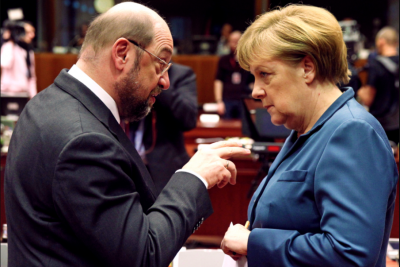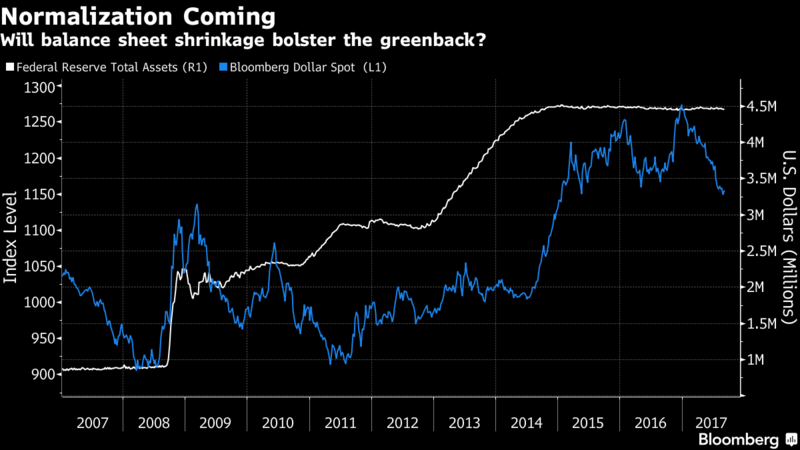- GOLD IRA
- Download Our 2024 Precious Metals IRA Investor’s Guide.
Click Here  Gold IRA
Gold IRA
 Investing
Investing
-
- CRYPTO IRA
- PRICES & STATS
- RETIREMENT PLANS
- BLOG
 Questions? Call (888) 820 1042
Questions? Call (888) 820 1042
This Month’s Pick Your Crisis Geopolitical Scenarios Favor Gold in Your Portfolios
Disclosure: Our content does not constitute financial advice. Speak to your financial advisor. We may earn money from companies reviewed. Learn more
Last Updated on: 29th December 2020, 12:31 am

Wall Street fears a perfect storm of uncertain events all coalescing at the same time. Yet this September is bringing exactly this to the global markets. Between the looming debt brinkmanship, the German elections, and a host of important central bank rate decisions all expected this month, it is a good time to think about safeguarding your investment and retirement portfolios while you still can.
IRA-approved gold is your ideal historically proven vehicle for this task. Gold makes sense in an IRA, especially in times of geopolitical instability. Get some today while the prices are still tolerable, before everyone else is headed for the proverbial stock market emergency exits.
It's Pick Your Geopolitical Disaster This September
You have so very many geopolitical messes to pick from this particular September. The tensions on the Korean Peninsula which have led the world to the brink of a re-eruption of the 1950's paused Korean War are only one of the many irons in the proverbial geopolitical fire these days.
There are similarly a dozen of the major G20 central bank interest rate decisions pending this month, critical elections in Europe (Germany) and Oceania, and the Congressional wrangling over how to raise the debt ceiling over the coming months before the end of the year's three months extension runs out. What a mess.
Central Banks' Days In the Sun
It is rare that more than a handful of the globally important central banks have rate decisions all at once in a given month. This September, it is actually a full dozen. Both the global currency and bond markets' fates will rest on the results of these various decisions, the meetings, and the speeches that come along with them.
The euro is tipped as the one to watch for extreme and potentially market-damaging volatility as the ECB announces their timetable for wrapping up the quantitative easing. ECB President Draghi has stated that his officials will talk about possible tweaks to the now long-running program in the fall. He refuses to tip his hand on if that means this coming meeting. The Euro is already at its record level for the last two years.
As if this were not enough potential trouble for the global economy, the U.S. Treasuries are galloping away. This has the Federal Reserve chiefs worried as they are starting to try to normalize their bloated balance sheet (since 2007) beginning on September 20th. They have sufficiently telegraphed this move to try to stymie any follow-up taper tantrum which shook the markets back in 2013 in their last attempt. This chart below helps you to understand the perils:

You might be tempted to think that the stock market benchmarks at all-time highs mean that all is well in the land of financial markets. Yet Chief International Economist Torsten Slok of Deutsche Bank AG warns not so fast:
“Now, when QE is about to be reversed, I don't see any papers or speeches talking about the coming big negative impact on equities, widening credit spreads, and boosting yields. It cannot be asymmetric such that QE only has positive effects and reversing QE will have no negative effects.”
The Canadians too may be looking to surprise markets with the Bank of Canada follow-up meeting to its first rate increase in nearly seven long years. Chief Economist Avery Shenfeld of CIBC expects they will hit the markets with another surprising rate hike imminently.
Meanwhile, the British pound sterling has the euro's problem in reverse. It has plunged to its lowest levels not seen since October in 2016 (by trade weighted terms). This has undoubtedly caught the eye of the Bank of England ahead of its big policy setting meeting.
Yet their hands are somewhat tied by the fact that the British economic data has been on the decline as the country's wage growth has been negative in real terms. This diminishes the likelihood of a deliberate shift to hawkishness.
If this is not enough major central bank indecisiveness for you, consider that the central banks of Japan, Russia, Brazil, Australia, and Mexico are also all meeting and deciding policy and potentially rates this month too.
September Already Has A Poor Track Record for Markets In General
Since the end of the Second World War, September has not been kind to stock market investors. In fact, per S&P Global research, the month has resulted in a typical loss of .7 percent, declining in fully 60 percent of Septembers.
Congress may have kicked the can down the proverbial road till December with their three month extension on the debt ceiling, yet this is practically tomorrow where the indecisive and slow moving governing body is concerned. If they can't raise the debt ceiling before Christmas, there will be serious problems with U.S. government payments.
We all know how Treasury Secretary Mnuchin swears up and down that in “no scenario” will the U.S. government refuse to pay its obligations. Traders have shown their skepticism in the Treasury bill curve kink of this month.
In point of fact, Wall Street was busily preparing itself for a doomsday scenario before they pushed off the deadline until December. Yet still looming just ahead is the now-hanging threat of the President to shut down the nation's government if Congress refuses to approve the necessary funding for his wall with Mexico.
The Vote's The Thing…
Ultimately, it is the results of several important elections that may pose the gravest threat to the stability of world stock markets. Several countries go to the polls in the month of September. Market participants are hoping that the results will not lead to additional sea changes in governments and policies (ala President Trump or Brexit).
Yet there are still potentials for nasty and unexpected surprises. While Germany's Chancellor Angela Merkel is widely anticipated to succeed in leading the September 24th election results, she still has to create a governing coalition with somebody else. The question is who will that party be?
The results will determine the road going forward not only for the largest economy of the EU and the euro zone, but also the specific policy direction of the EU in future years. Each of her possible coalition partners present dangers, particularly in the immediate Brexit negotiations.
Add to this other September elections in Norway today and New Zealand on September 23rd, and there could be opposition parties doing well enough to set up coalition governments.
Other Dangers Lurk This Month
Other geopolitical dangers lurk around seemingly every corner. China and India are still trying to get past their recent military impasse in the bordering Himalayas Mountains. Brexit talks keep going on but accomplishing little to nothing as the clock ticks quickly down to March 2019. President Trump's administration continues its efforts to renegotiate NAFTA. Any one of these events has the potential to upend the world financial markets. It's pick your proverbial crisis month.
How will you protect your retirement portfolios in this dangerous geopolitical time in the world? It is only gold that you can count on to deliver the same historically proven protection and performance that it always has over the past more than 5,000 years of consistent and recorded world history.
Time to consider the various IRA-approved metals now before the storms break loose on the world economy. This list of the top five gold coins for investors might help. All that you have left to figure out is which is better— physical gold and silver bullion vs. gold and silver ETFs?



 Silver
Silver Gold
Gold Platinum
Platinum Palladium
Palladium Bitcoin
Bitcoin Ethereum
Ethereum






